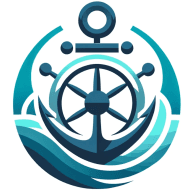The maritime industry, a vital cog in the global economy, faces significant challenges due to evolving environmental policies. These policies, aimed at preserving our planet, have a profound impact on maritime operations. This blog post delves into the intricacies of this influence, exploring how environmental regulations shape the maritime sector's practices, strategies, and future trajectories.
The Green Shift in Maritime Operations
Environmental policies have necessitated a 'green shift' in maritime operations. This shift is not merely a trend but a necessity, driven by the urgent need to mitigate climate change and preserve marine ecosystems.
Maritime operations contribute significantly to global carbon emissions. The International Maritime Organization (IMO) has set ambitious targets to reduce these emissions, leading to a radical transformation in the sector. Ships are now being designed and retrofitted to be more energy-efficient. Alternative fuels such as biofuels, hydrogen, and ammonia are being explored to replace traditional fossil fuels.
Moreover, the industry is also investing in renewable energy technologies like wind and solar power for ship propulsion. These changes are not just about compliance with regulations. They also make good business sense as they lead to cost savings in the long run.
The Role of Technology in Complying with Environmental Policies
Technology plays a crucial role in helping the maritime industry comply with environmental policies. Advanced technologies are being used to monitor and reduce emissions, manage waste, and prevent oil spills.
Digitalization is another key aspect of this technological revolution. It enables real-time monitoring of ship performance and fuel consumption, leading to more efficient operations.
Furthermore, technologies like AI and machine learning are being used to optimize routes and speeds, reducing fuel consumption and emissions.
Despite the initial investment required, these technologies offer significant benefits in terms of compliance with environmental regulations, operational efficiency, and cost savings.
The Economic Impact of Environmental Policies
Environmental policies have a significant economic impact on maritime operations. Compliance with these policies often requires substantial investment in new technologies, infrastructure, and training.
However, these investments can lead to significant cost savings in the long run. Energy-efficient ships consume less fuel, leading to lower operational costs. Compliance with environmental regulations can also help avoid hefty fines and penalties.
Moreover, there is a growing market for green shipping services. Customers and stakeholders are increasingly demanding environmentally friendly practices. Therefore, companies that embrace these changes can gain a competitive advantage.
The Challenges of Implementing Environmental Policies
Implementing environmental policies in the maritime sector is not without challenges. One of the main challenges is the high upfront cost of green technologies and infrastructure.
Another challenge is the lack of global uniformity in environmental regulations. This can lead to confusion and inconsistencies in compliance.
Moreover, there is a need for skilled personnel to operate and maintain the new technologies. This requires investment in training and capacity building.
Despite these challenges, the maritime industry is making significant strides in implementing environmental policies. The benefits of these policies, both for the environment and the industry, far outweigh the challenges.
The Future of Maritime Operations in Light of Environmental Policies
The future of maritime operations will be significantly shaped by environmental policies. The industry is moving towards a more sustainable and environmentally friendly model of operation.
In the future, we can expect to see more energy-efficient ships powered by renewable energy. Digitalization and advanced technologies will play a crucial role in monitoring and reducing emissions.
Moreover, the industry will need to invest in training and capacity building to equip its workforce with the skills needed to operate in this new environment.
While the road ahead is challenging, the maritime industry is well-positioned to navigate these changes and emerge as a more sustainable and responsible sector.
The Role of Stakeholders in Implementing Environmental Policies
The successful implementation of environmental policies in the maritime sector requires the active participation of all stakeholders. Governments need to provide clear and consistent regulations and offer incentives for green practices.
The industry needs to invest in green technologies and infrastructure and foster a culture of environmental responsibility.
Customers and stakeholders can play a role by demanding environmentally friendly practices and supporting companies that adhere to these practices.
In conclusion, the implementation of environmental policies in the maritime sector is a collective responsibility that requires the active participation of all stakeholders.
Navigating the Green Shift: The Maritime Industry's Response to Environmental Policies
The environmental policies have undeniably reshaped maritime operations, pushing the industry towards a greener, more sustainable future. While the journey is fraught with challenges, the industry's proactive response signifies a promising shift. The maritime sector is not just adapting to these changes but is also leveraging them to drive innovation, efficiency, and economic growth. As we navigate the future, the industry's commitment to environmental stewardship will continue to steer its course.

